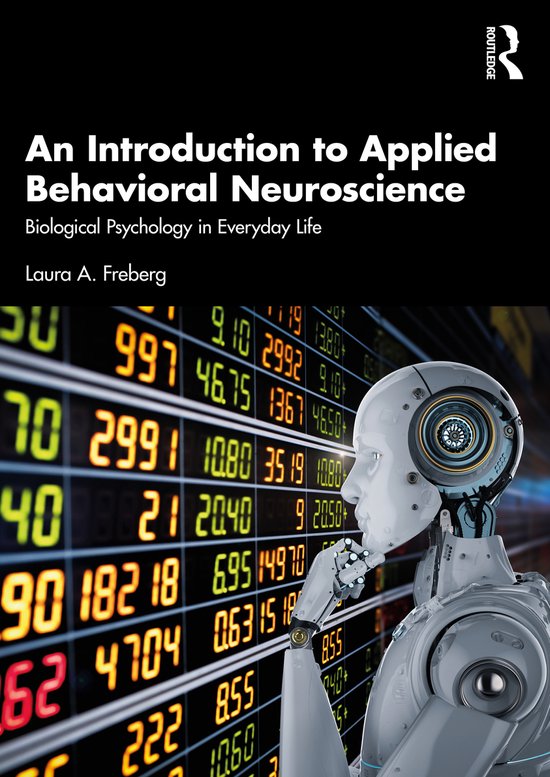An introduction to applied behavioral neuroscience

Uiterlijk 4 december in huis
An Introduction to Applied Behavioral Neuroscience explores the connection between neuroscience and multiple domains including psychological disorders, forensics, education, consumer behavior, economics, leadership, health, and robotics and artificial intelligence.
An Introduction to Applied Behavioral Neuroscience explores the connection between neuroscience and multiple domains, including psychological disorders, forensics, education, consumer behavior, economics, leadership, health, and robotics and artificial intelligence.
The book ensures students have a solid foundation in the history of behavioral neuroscience; its applicability to other facets of science and policy, and a good understanding of major methodologies and their limitations to aiding critical thinking skills. Written in a student-friendly style, it provides a highly accessible introduction to the major structural and functional features of the human nervous system. It then discusses applications across a variety of areas in society, including how behavioral neuroscience is used by the legal system, in educational practice, advertising, economics, leadership, the development of and recovery from health challenges, and in robotics. Each of the application-specific chapters present the problems that neuroscience is being asked to address, the methods being used, and the challenges and successes experienced by scholars and practitioners in each domain.
It is a must-read for all advanced undergraduate and postgraduate students in biological psychology, neuroscience, and clinical psychology who want to know what neuroscience can really do to address real-world problems.
- 1 Bekijk alle specificaties
Taal: en
Bindwijze: Paperback
Oorspronkelijke releasedatum: 12 mei 2022
Aantal pagina's: 276
Hoofdauteur: Laura A. Freberg
Hoofduitgeverij: Routledge
Product breedte: 174 mm
Product lengte: 246 mm
Studieboek: Nee
Verpakking breedte: 174 mm
Verpakking hoogte: 246 mm
Verpakking lengte: 246 mm
Verpakkingsgewicht: 680 g
EAN: 9781032049304